Few industries stand to gain more from artificial intelligence (AI) than healthcare. From earlier disease detection to more efficient clinical research, the potential is enormous. But in an environment where lives are on the line and trust is everything, adoption has been cautious.
Our research shows that AI is already creating meaningful value in healthcare market research. It’s not a futuristic promise; it’s happening today in ways that save time, uncover deeper insights, and strengthen decision-making.
Where AI is Already Making an Impact
AI is no longer just a buzzword in healthcare research. It’s being applied in ways that deliver real benefits today.
For example, qualitative analysis is becoming faster and more efficient as AI takes over the repetitive work of sorting and categorizing responses, freeing researchers to focus on deeper interpretation. Chatbots are also emerging as safe collaborators. In a recent KS&R pilot, strict security guardrails allowed chatbots to work with qualitative responses to summarize, synthesize, and distill insights at scale. This extended the research beyond what was directly asked in the survey, enabling teams to test ideas and accelerate engagement while keeping sensitive information protected.
Survey research is also evolving. Open-end responses, which were once time-consuming to code and interpret, can now be enhanced through augmented analysis. This allows researchers to gain more value from smaller sample sizes. Meanwhile, secure in-house coding solutions make it possible to tailor analysis without monopolizing analyst hours.
At the frontier, “deep research” applications are beginning to synthesize insights from disparate datasets, offering a richer and more contextualized view of healthcare dynamics than traditional methods alone.
Where AI Could Go Next
While progress is already underway, the opportunities ahead are even more transformative. Consider these possibilities:
• Adverse event reporting: Pharma manufacturers must report adverse events (such as side effects or device malfunctions) within 24-48 hours. AI could help flag these mentions in real time and prompt richer follow-up questions to ensure compliance.
• AI-moderated interviews: Automating interviews could reduce interviewer bias and create more consistent qualitative data collection at scale.
• Patient journey mapping: By weaving together fragmented sources like claims data, EHR records, and social media, AI could build a holistic view of patient experiences.
• Advanced segmentation: Beyond demographics, AI can mine unstructured data such as physician notes and transcripts to reveal new patterns. Chatbots could be tailored to simulate specific segments, allowing researchers to “interact” with them as if they were patients or physicians.
Why Healthcare is Hesitant
For all its promise, AI adoption in healthcare has been slowed by structural, cultural, and regulatory barriers.
Unlike in retail or finance, mistakes in healthcare can have life-or-death consequences. This risk makes organizations naturally cautious. Adding to that, personal health information (PHI) is tightly regulated under HIPAA, GDPR, and other frameworks. Cloud-based or large-scale AI systems raise questions about secure storage, transfer, and access.
Bias in data also poses challenges. AI models trained on incomplete or skewed datasets can unintentionally underrepresent minority populations or rare disease groups. Most out-of-the-box large language models (LLMs) are trained primarily on publicly available data rather than confidential, proprietary information. This lack of “behind-the-scenes” context further limits their reliability in healthcare (and B2B more broadly), where nuance and accuracy are critical.
On top of this, the lack of globally accepted frameworks for validating AI systems creates uncertainty. The FDA’s guiding principles for machine learning offer a start, but alignment across countries and institutions is still missing.
And perhaps most importantly, there’s the question of trust. Physicians, patients, and researchers often view AI outputs as “black boxes” that can’t fully replace human expertise.
Overcoming the Barriers
None of these challenges are insurmountable, but they require deliberate strategies.
• Human-led AI: AI should be framed as a partner, not a replacement. Machines can flag anomalies or patterns, but humans must make the final calls to maintain accountability.
• Security safeguards: Encryption, access controls, and careful choices between cloud and on-premises storage help minimize risk. Data anonymization can further protect privacy without sacrificing value.
• Bias monitoring: Regular auditing and retraining ensures that AI models evolve alongside new data and remain accurate and fair.
• Transparency: Building systems that can explain their results in plain terms is key to building confidence among users.
• Customization and grounding: Large language models can be tailored and anchored to internal data, helping overcome the limitations of generic, out-of-the-box training and ensuring outputs are contextually relevant.
With these practices in place, AI can move from being perceived as a liability to being embraced as a trusted collaborator that amplifies human judgment.
The Path Forward
The future of AI in healthcare will not hinge on replacing people but on strengthening their capabilities. When used responsibly, AI provides speed, scale, and new perspectives, while human expertise ensures nuance, empathy, and accountability. The organizations that strike this balance – adopting innovation without losing sight of trust – will set the standard for the next era of healthcare research.
About KS&R
KS&R is a nationally recognized strategic consultancy and marketing research firm that provides clients with timely, fact-based insights and actionable solutions through industry-centered expertise. Specializing in Technology, Business Services, Telecom, Entertainment & Recreation, Healthcare, Retail & E-Commerce, and Transportation & Logistics verticals, KS&R empowers companies globally to make smarter business decisions. For more information, please visit www.ksrinc.com.


